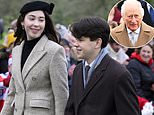Don’t believe everything you hear: Almost HALF of us remember events that never happened
- Researchers looked at studies of memory implantation in more than 400 people
- In the studies, they asked to imagine and remember a range of fictional events
- Around 50% of participants accepted the implanted memories as their own
- The findings raise further doubts about the credibility of eyewitness statements used in court, and shed light on how people develop false beliefs
When it comes to recounting the facts, your memory could play tricks on you.
A study has found that almost half of us are prone to remembering things that never happened.
Researchers at Warwick University showed that if people are told to repeatedly imagine a fictional event in their lives, around 50 per cent accepted that it did.

A study has found that almost half of us are prone to remembering things that never happened, casting doubts on the credibility of eyewitness statements in court (stock image)
The findings raise further doubts about the credibility of eyewitness statements used in court, and shed light on how people develop false beliefs.
As part of the study, researchers looked at a number of memory implantation studies, in which people were provided with false memories as their own.
More than 400 people took part in the eight studies, and were asked to imagine a range of false events – including taking hot air balloon rides, playing pranks on a teacher, or creating havoc at a family wedding.
A meta-analysis of the results revealed that around 50 per cent of people believed, to some extent, they had actually experienced these ‘implanted’ events.

In the course of the studies, more than 400 people were asked to imagine a range of false events – including taking hot air balloon rides, playing pranks on a teacher, or creating havoc at a family wedding
Just under one third (30 per cent) appeared to 'remember' the event – accepting the suggested event and embellishing it with their own details, even describing images of what it was like.
While another 23 per cent of people showed signs they accepted the implanted memory as their own to some degree, believing it really happened.
Dr Kimberley Wade, a psychologist from the University of Warwick said: ‘We know that many factors affect the creation of false beliefs and memories – such as asking a person to repeatedly imagine a fake event or to view photos to ‘jog’ their memory.
‘But we don't fully understand how all these factors interact. Large-scale studies like our mega-analysis move us a little bit closer.’
‘The finding that a large portion of people are prone to developing false beliefs is important.
‘We know from other research that distorted beliefs can influence people's behaviours, intentions and attitudes.’
Writing in a paper in the journal Memory, the authors conclude: 'Our results reinforce how important is it to continue educating people about the malleability of memory.'
Most watched News videos
- Passenger on Azerbaijan flight sends wife video moments before crash
- Fatal Christmas crash plane's terrible nose dive before crashing
- Horrific moment plane with 72 onboard crashes in Kazakhstan
- Drunk Brit woman fights police in Thailand streets on Christmas
- Dramatic video shows miracle survivors of devastating plane crash
- New advanced fighter jet spotting flying in Chinese airspace
- Paws off! Golden retriever swipes family's Christmas turkey
- Male survivor of Azerbaijan Airlines crash films shrapnel damage
- Wild video shows 'UFO' accelerating instantly in New Jersey
- Horrifying moment car mounts Shaftesbury Avenue pavement
- Donald Trump and his family go to Mar-a-Lago for Christmas
- Moment retired cop shoots neighbor over music dispute on Christmas
























































































































































































